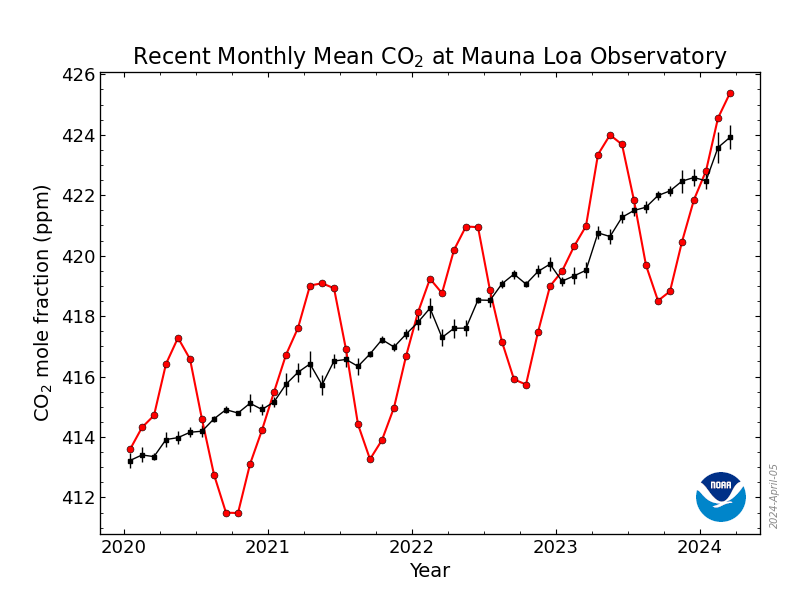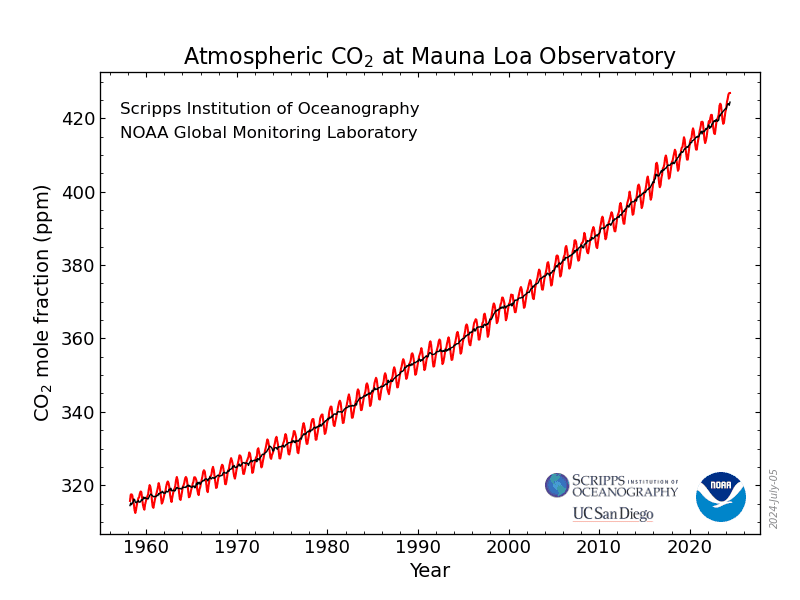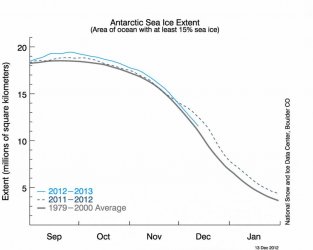RollingThunder
Gold Member
- Mar 22, 2010
- 4,818
- 522
- 155
As CO2 levels in the Earth's atmosphere continue to climb at an accelerating rate to new record high levels and mankind as a whole continues to ignore the looming climate change crisis, the Arctic reached a new record low in sea ice extent once again this year and the total volume of the ice has declined enormously as well. The melting away of the Arctic ice cap is a major change in the Earth's long standing climate patterns and it will have profound and disruptive effects on northern hemisphere climate patterns. The rapid melting of the polar and Greenland and mountain glacier ice around the world (ice that has, in some cases, been there for tens of thousands of years at least) is a clear and unmistakeable sign of global warming. The physical changes that anthropogenic global warming are causing are happening even faster than the climate scientists were predicting they would just twenty years ago.
Here's the latest research results on the Arctic and Antarctic ice losses.....
Clearest indication yet that polar ice sheets are melting fast
Melting polar ice has added 11.1mm (0.43") to global sea levels in two decades
Arstechnica
by David Cornish, wired.co.uk
Dec 2, 2012
(excerpts)
A research paper has drawn on data from NASA and ESA satellites to produce the most comprehensive assessment of ice sheet losses in Antarctica and Greenland to date. The paper, published on 29 November in the journal Science, shows that melting Antarctic and Greenland ice sheets have added 11.1mm (0.43") to global sea levels since 1992. The paper, A reconciled estimate of ice sheet mass balance, was drawn together by an international team of 47 researchers, using data collected from ten satellite missions to produce the most consistent picture of polar ice sheets ever recorded. The resulting findings have been able to reconcile the differences that existed between previous ice sheet studies, by carefully matching observation periods and survey areas. ...[T]he use of data from NASA and ESA satellites have confirmed that both Antarctica and Greenland are losing ice.
The combined melting of both the Antarctic and Greenland ice sheets accounted for one-fifth of all sea level rises over the 20-year survey periodthe remainder caused by the thermal expansion of the warming ocean, melting of mountain glaciers and small Arctic ice caps, and groundwater mining. The rate at which the ice sheets are melting was also seen to rise over the study period, with both Antartica and Greenland shedding more than three times as much ice each year (the equivalent to a sea level rise of 0.95mm) as they were in the 1990s (0.27mm). Approximately two-thirds of the loss is coming from Greenland. "The rate of ice loss from Greenland has increased almost five-fold since the mid-1990s" said NASA's Erik Ivins, co-author on the study. "In contrast, while the regional changes in Antarctic ice over time are sometimes quite striking, the overall balance has remained fairly constantat least within the certainty of the satellite measurements we have to hand." Andrew Shepherd of the University of Leeds led the study, which drew together teams from 26 laboratories from across the globe.
© 2012 Condé Nast. All rights reserved
(In accordance with Title 17 U.S.C. Section 107, this material is distributed without profit to those who have expressed a prior interest in receiving the included information for research and educational purposes.)
Here's the latest research results on the Arctic and Antarctic ice losses.....
Clearest indication yet that polar ice sheets are melting fast
Melting polar ice has added 11.1mm (0.43") to global sea levels in two decades
Arstechnica
by David Cornish, wired.co.uk
Dec 2, 2012
(excerpts)
A research paper has drawn on data from NASA and ESA satellites to produce the most comprehensive assessment of ice sheet losses in Antarctica and Greenland to date. The paper, published on 29 November in the journal Science, shows that melting Antarctic and Greenland ice sheets have added 11.1mm (0.43") to global sea levels since 1992. The paper, A reconciled estimate of ice sheet mass balance, was drawn together by an international team of 47 researchers, using data collected from ten satellite missions to produce the most consistent picture of polar ice sheets ever recorded. The resulting findings have been able to reconcile the differences that existed between previous ice sheet studies, by carefully matching observation periods and survey areas. ...[T]he use of data from NASA and ESA satellites have confirmed that both Antarctica and Greenland are losing ice.
The combined melting of both the Antarctic and Greenland ice sheets accounted for one-fifth of all sea level rises over the 20-year survey periodthe remainder caused by the thermal expansion of the warming ocean, melting of mountain glaciers and small Arctic ice caps, and groundwater mining. The rate at which the ice sheets are melting was also seen to rise over the study period, with both Antartica and Greenland shedding more than three times as much ice each year (the equivalent to a sea level rise of 0.95mm) as they were in the 1990s (0.27mm). Approximately two-thirds of the loss is coming from Greenland. "The rate of ice loss from Greenland has increased almost five-fold since the mid-1990s" said NASA's Erik Ivins, co-author on the study. "In contrast, while the regional changes in Antarctic ice over time are sometimes quite striking, the overall balance has remained fairly constantat least within the certainty of the satellite measurements we have to hand." Andrew Shepherd of the University of Leeds led the study, which drew together teams from 26 laboratories from across the globe.
© 2012 Condé Nast. All rights reserved
(In accordance with Title 17 U.S.C. Section 107, this material is distributed without profit to those who have expressed a prior interest in receiving the included information for research and educational purposes.)










